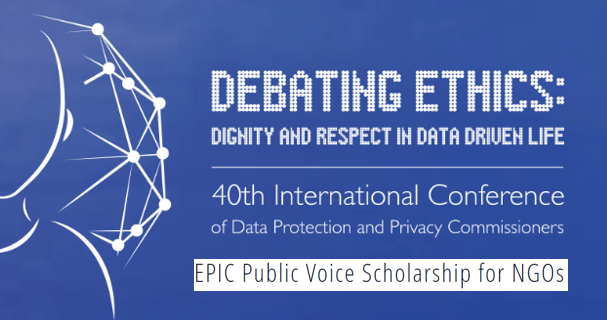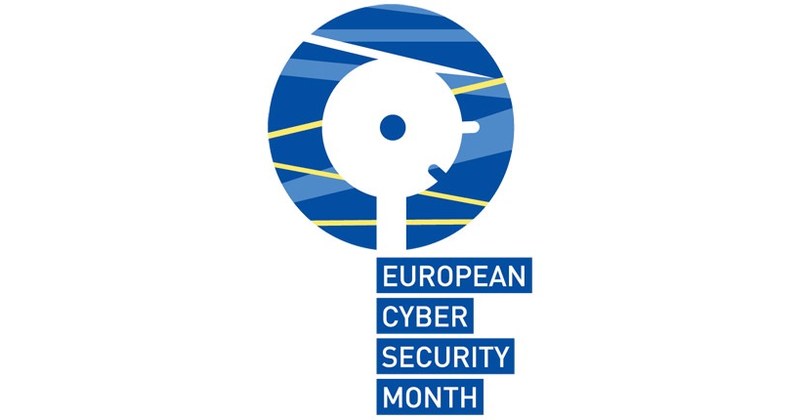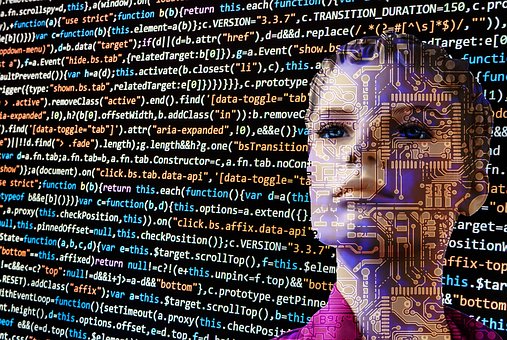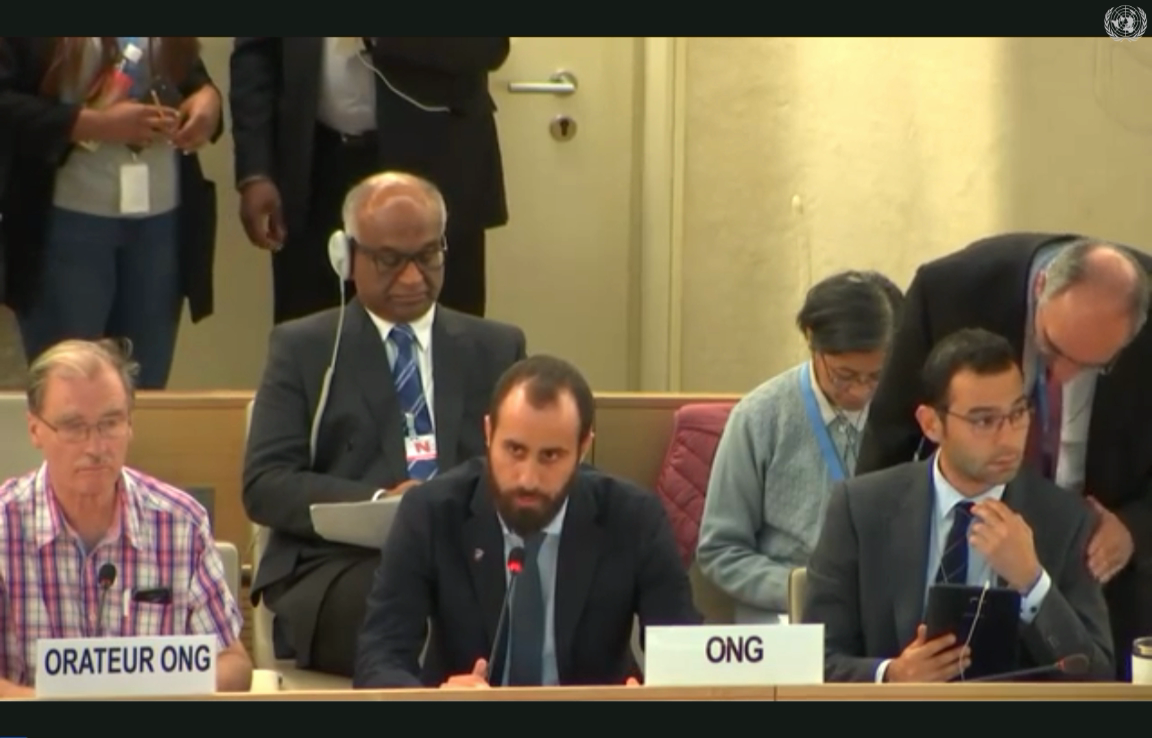An interview with Emmanuel Tzivieris, DPO at Investment Bank of Greece
On May 25, 2018, the General Data Protection Regulation (GDPR) came into force and changed significantly the protection of personal data in our country. The GDPR establishes many rights for citizens. Among others, the Regulation provides for the creation of the position of the Data Protection Officer (known as DPO). We met with Emmanuel Tzivieris*, DPO at the Investment Bank of Greece, so that he could explain us more about this new position.
– Talk to us about the role of the DPO. Is it something new?
Many people are referring to the role of the DPO as a novelty of the GDPR, which is not entirely accurate. The term is not unknown. It also existed in the European Directive 95/46, it was also included in Greek law 3979/2011 on eGovernment, it also existed in Germany; but in practice it was not used, at least not to such an extent. This has changed with the implementation of the GDPR, which provides for the mandatory appointment of a DPO, starting on 25 May 2018, for three main categories of organizations and businesses:
(a) Public authorities and bodies other than the courts.
(b) Organizations whose core activities require regular and systematic monitoring of subjects on a large scale.
(c) Organizations processing personal data of specific categories, such as genetics, biometrics, health data e.t.c.
– You are giving me the opportunity to ask you about the level of business alertness on May 25th. Had the Greek companies and organizations already appointed DPOs?
I am not aware of the overall picture of Greek businesses and public organizations to answer your question, but there are indications that the “last minute” rule was not excluded even in the case of GDPR. At this point, I would like to emphasize that the GDPR was adopted in April 2016, which meant that all the persons in charge had more than two years to comply with its requirements, including the definition of DPO. Even the incorporation of the Regulation into the national legislation of the Member States has been delayed. Just a few days after its introduction, the European Commissioner responsible for justice has warned eight member-states (including Greece) and urged them to speed up their compliance procedures.
– How would you describe the role of DPO in an organization?
There are various interpretations of the role the DPO has to play in an organization. It has been suggested that the DPO will be the “long hand” of the Data Protection Authority, or its “eyes and ears” within the organization. It has also been heard that he will be an informal internal auditor who can carry out audits and communicate his findings to the Authority. However, we can’t confirm any of these theories when the legislative process is in progress in Greece. The only certainty is that the DPO will be a communication channel, or the link between the organization and the Supervisory Authority, and will be entrusted with the tasks assigned to it by the Regulation in Article 39, such as monitoring the organization’s compliance with the Regulation, advice to the company, staff briefing, opinion on impact assessment, etc.
– How important are the personal data of the subjects that are managed and processed by a business?
There are whole business models based almost exclusively on the processing of personal data. Meanwhile, the digital world is evolving rapidly and this has resulted in creating an intangible environment for individuals, consumer preferences and needs. See what happens with electronic communications today and compare it to previous decades. Look up on what is coming with artificial intelligence. Real cosmogony. So, you understand the importance of legislation such as the GDPR that tightens the framework for the processing of personal data at a time when personal data and control are becoming decisive for sustainability, competitiveness and further development of businesses.

– What do you think is the biggest challenge for a DPO?
The challenges mainly concern the innovations introduced by the Regulation on the general functioning of an entity. As you can see, it is a piece of legislation that changes the strategy and the way in which organizations and businesses have operated so far. The DPO, therefore, as the orchestration of the compliance process, is called upon to confront the habit, which is the greatest enemy of a healthy business. It is called upon to create within the company a new culture that treats personal data with respect and a sense of responsibility.
– Can the consumer contact the DPO directly?
The Regulation provides for the obligation to process personal data in a transparent manner. In this context, the organization is required to share the DPO contact information to all data subjects, facilitating communication with him/her.
Any interested person may contact the DPO to get informed about the categories of personal data being processed, the purposes of the processing, the potential recipients of the data and, in particular, his/her rights as derived from Regulation.
– What about the public’s awareness so far? Is there a response and interest of the public for the protection of their personal data?
Remember the first days of application of the Regulation and the dozens of identical messages we received from various businesses, e-shops, social media, etc. Anyone claiming that he was not bothered by this information storm and did not delete most of these messages would not be frank. This negative atmosphere gave the impression that sending the newsletters discouraged the public rather than sensitizing it.
This climate is slowly reversing. The messages we receive from daily communication with the public, as well as the results of a recent survey on the level of awareness and information of the Greeks on personal data protection issues, are encouraging. More than 80% said they were aware of the new regulation, while 77% of respondents claimed they had become more cautious about how they shared their personal data. If the numbers tell the truth, then we are on the right track. This progress is largely due to initiatives such as yours, Homo Digitalis, aimed at raising public awareness, but mainly ensuring that the public is properly and responsibly informed.
– How do you see the future of business in this digital world?
Although I’m not good at predictions, what I can say is compliance with the GDPR is the first major test that businesses are faced with in this field. There are plenty of other more demanding tests coming. The results of this first exercise will reveal the level of alertness of organizations to adapt to the new requirements and new business models of the digital world. Those who pass the test successfully have every reason to be optimistic that they will remain competitive, unlike the others, for which, unfortunately, the future does not look promising.
*Emmanuel Tzivieris holds a Bachelor from the Law School of Athens, a Master in Public Law form the National Kapodistrian University of Athens and a Master in Law and Economics from Utrecht University. He is the DPO of the Investment Bank of Greece.
Can machines replace judges?
A philosophical approach by Philippos Kourakis*
There are various ways in which technology could change the way people who are involved in the legislative process and law enforcement work. In this text we will focus on the question of machines taking over the judiciary, and if that could be in line with Ronald Dworkin’s right solution thesis.
Using a specific algorithm
Lawyers Casey and Niblett [1] describe a hypothetical future situation in which the information and predictions we can derive from technology will be of such precision where we can assign the judge’s role to machines. The process, as they say, will be the following: in some US states, an algorithm is already being used by judges to predict the possibility that the accused will not appear before the court. Although this algorithm has not replaced the judges, it is reasonable to assume that the more effective it will be, the more the judges will rely on it, until they ultimately depend entirely on it.
Τhere is a question through this (hypothetical) scenario on how such a move would be in harmony with the very nature of law. To give an answer, we will turn to Dworkin’s work and in particular to his theory regarding the right solution thesis.
The theory of the right solution and its possible misinterpretation
Dworkin in his early career has shaken the philosophical and rigorous currents of his time, arguing that always, even in the most controversial and difficult cases, there is a right solution [2]. At first, this position seems to be largely expressed by those who support the replacement of judges by machines if the right solution seems reasonable to emerge from a mechanistic process of the highest precision. However, this approach is a misinterpretation of Dworkin’s position.
Dworkin himself had predicted such a misinterpretation. In the Empire of the Law (1986), he wrote [3]:
“I have never designed an algorithm to be used in the courtroom. No computer wizard could draw from my arguments a program which, after gathering all the facts of the case and all the texts of previous laws and judgments, would give us a verdict that would find everyone in agreement.”
Dworkin’s statement stems from his belief that the correct method of hearing cases is an exercise that is fundamentally interpretative and worthwhile and, as such, is based on principles. The judge can find the right solution in each case, but only by finding the best possible interpretation.
The best interpretation is expressed by those who, according to the letter of the law, can legitimately justify the coercion imposed by the law on its companions. In this process, Dworkin argues that the judge tries to preserve the integrity of the law by interpreting it in its best light, having in mind that the law is the creation of a community in which the unifying element is the attempt to justify state coercion.
Dworkin believed that each case had a right solution, but nevertheless, every case is difficult, and finding a solution is a very important exercise of political ethics. Therefore, despite the formalist texture of the philosopher’s belief in a correct solution to each case, he realized that the legal system, being an organic unit, is constantly changing with its individual elements being as constant as possible between them.
Will technology replace judges?
The question that arises from the above is whether the pace of technology development and the path it has taken will lead to machines effectively replacing judges, finding the right answer even in difficult cases. Machine Learning can indeed redirect a set of rules so that a more general goal can be served, which is something that may well be ethically welcomed. From this perspective, Machine Learning is dynamic and structured with continuity. Therefore, if it was used to deal with real assumptions, it would do so with some kind of integrity that would be mechanical in its nature.
Nonetheless, the desired goals would remain intact. The static nature of political ethics, on which the legal system would be based, would detract from legality, in Dworkin’s view. For the philosopher, integrity has the meaning that all parts of the legal system can be revised, since the argumentative disagreement reaches the foundations of legality by looking at basic questions such as how citizens should be taxed and whether they should be taxed or if there should be policies of positive discrimination [4]. Following this reasoning, legislative policies are based on principles that arise through the interpretation of difficult cases. This process aims to consolidate past decisions in a way that would justify state coercion on the part of the interpretive community.
The conclusion
To sum up, it is understandable that the prospect of technology through Machine Learning could hardly be in harmony with legality as expressed by Dworkin. Machine Learning does not work on principles. It operates on statistical relationships that do not reflect ethical principles. Its operation would therefore be abolished to the extent that a system (the legal) would require it to act fundamentally morally.
*Philippos Kourakis is a lawyer with a specialization in Philosophy of Law and Criminology. He holds a Bachelor from the Law School of Athens and a Master from Oxford University in Criminology as well as a Master in Philosophy of Law from the National Kapodistrian University of Athens.
[1] Casey, Anthony J. and Niblett, Anthony, Self-Driving Laws (June 5, 2016). Available at SSRN: https://ssrn.com/abstract=2804674
[2] Ronald Dworkin,Taking Rights Seriously(London: Duckworth, 1978), chapter 4
[3] Ronald Dworkin,Law’s Empire (Cambridge, MA: Harvard University Press, 1986) p. 412
[4] Ibid, p. 73
Homo Digitalis receives two scholarships for free participation in the most popular conference for the protection of privacy and private data in the world
Our organization has the pleasure and honour to have received two scholarships from the program “Epic Public Voice Scholarships for NGOs” to participate in the 40th “International Conference of Data Protection and Privacy Commissioners” in Brussels (22-26 October).
The scholarships could be obtained only by 20 organizations worldwide and they are provided by EPIC, a worldwide well-respected research centre headquartered in Washington D.C, U.S.A which focuses its activity and attention at the protection of privacy, freedom of expression and the democratic values in the society of information.
The conference is organized by the European Data Protection Supervisor (EDPS) and it is widely respected concerning the issues of privacy and personal data protection.
Taking part in the process we will be able to observe speeches and conversations about various relevant issues and exchange ideas with other digital rights organizations from all over the world, academics, as well as representatives of organizations of the EU and the Council of Europe, with government spokesmen of other countries, members of supervising authorities and company agents.
The schedule of the event can be found here.
Stay tuned!
Enrich your knowledge and get information about your digital rights through educational quizzes
Questions are interdependent with knowledge, since knowledge is the process of asking questions. As you have already been informed by Homo Digitalis, we are in the first week of the European Cyber Security Month.This article will guide you through some very interesting material that will enrich your knowledge through questions, educational questionnaires and quizzes.
Every time you use the internet a new digital world unfolds before you. Through a simple Internet connection, you have access to an ocean of information that you can use to get informed, educated, to communicate and have fun.
However, this world is not just a world of opportunities, but also a world full of challenges and risks. Campaigning and raising awareness are the keys in order to take full advantage of the offered opportunities given to you.
Our journey to awareness is about to begin with the first educational questionnaire on our list, which comes from the Communications Privacy Authority (ADAE). ADAE is one of the independent authorities, provided by the Greek Constitution. Its purpose is to protect the free correspondence or communication in any possible way. ADAE has recently posted a training questionnaire on its website with questions and answers based on a number of important issues.
If you have questions about the dangers stemming from the installation of malicious software on your computer or mobile device, if you suspect that your telephone or internet communication is being monitored, or if you want to know what is the right way to respond when you receive threatening or abusive calls, then the ADAE questionnaire will give you the right guidelines.
Next stop in our October journey to awareness is the variety of quizzes of knowledge and awareness created by the Hellenic Safer Internet Centre team within the SaferInternet4Kids campaign and is specially designed for children and teachers.
The Hellenic Safer Internet Centre operates under the Institute of Technology and Research (ITE) and through the SaferInternet4kids campaign website it sensitizes children, parents and teachers regarding the safe use of the Internet and social networking applications. If you want to know about your personal data, cyberbullying, excessive internet engagement, and more, you should definitely visit this site.
The third and last stop of our current trip is the Network and Information Security quiz prepared by the European Network and Information Security Agency (ENISA). The third and last stop of our current trip is the Network and Information Security quiz prepared by the European Network and Information Security Agency (ENISA). This quiz is available in all languages of the Member States of the European Union and is divided into two themes, privacy and general security. Start the quiz here and get detailed answers for questions like: Is incognito mode private? How can botnets affect you? What concerns do cookies raise and what is VPN?
Fortunately, over the last few months a Safe Navigation Guide has been prepared for you by the Homo Digitalis team, which contains basic information about your device settings and general online behavior. If you have not yet taken the time to read this guide, do not waste time. Getting properly informed is only a few clicks away.
The European Cyber Security Month is here
Alongside with the hack of 50 million Facebook accounts
You might have already read about the recent cyber-attack on Facebook and the fact that the intruders gained access to more than 50 million accounts.
A tremendous amount of personal data, such as conversations, photos, important information regarding the lives and relationships of all these users with other users are in the hands of the hackers. This attack clearly shows how vulnerable we all are. Even Internet giants, such as Facebook, are not able to protect their users in certain cases.
This attack reminds us that expensive cyber security systems are not always enough. Regardless of the security measures everyone uses, there will always be a team of talented hackers, which might be able to take advantage of some human mistake or a weakness in the installed cybersecurity systems and successfully hack them after persistent efforts.
The protection of digital rights, such as privacy, protection of personal data and the freedom of online expression and information, is intrinsically linked to the security of the computer systems and the adoption of the pertinent techniques or organizational measures, which guarantee the requisite protection.
For this reason, the European Union Agency for Network and Information Security (ENISA) together with the European Commission (DG CONNECT) and other partners devote October to cyber security every year. For the sixth time the campaign “European Cyber Security Month” is here to draw the attention of people and organizations on the importance of the security of information on cyberspace.
Through events taking place in various EU Member States or “digital” meetings, which you can follow through your computer, this campaign aspires to promote the safer use of the Internet and enhance the interest of the public in cyber security.
If you want to get informed on the various events taking place, you can have a look at the map of the events here.
Digital heritage: Digital data as a component of the heritage of a deceased person
By Angelina Vlachou*
In 2018, all of us use the Internet quite extensively; through this extensive use a large quantity of digital data which concerns us is gathered. This data stem from profile creation in social media, from our e-mail address, from websites, which a person might use for his/her business, etc.
When the person these data concern dies, these data fall under the notion of “digital heritage”. The discussion on digital heritage is huge.
In this initial stage, it must be noted that both national and EU legal provisions on the protection of personal data -including the recent General Data Protection Regulation (GDPR) Preamble 27- concern personal data of natural living persons.
In particular, GDPR leaves in the discretion of Member States to decide whether they will extend protection to deceased persons or not. There are countries, which have already provided for such protection, i.e. Denmark.
Thus, arises the legal (and real) issue of the possibility to offer protection or not, but also the legal handling of the large volume of digital data, which constitute the digital heritage of a deceased person.
The most well-known social media platforms have already faced the necessity to solve this issue. More specifically, they have faced the question of what is going to happen to their users’ accounts, who are not alive anymore.
There are two possibilities hitherto, which slightly differ depending on the terms and conditions of each company. On the one hand, there is the possibility to totally erase the account; this possibility is usually given only to close relatives of the deceased person and it is often needed to submit an electronic form and to present some documentary evidence.
On the other hand, platforms like Facebook, Twitter and Instagram, also offer the possibility to change an account to a memorialized account. In this option, the deceased user’s profile is preserved, while some sensitive personal data, such as address and contact information, are removed. Additionally, Facebook in particular deactivates the connection information for these accounts. As a result, if someone wishes to log in an account to have access to the deceased person’s data, he/she will face the message “We cannot share the connection information for a memorialized account. Connecting to a third person’s account violates our policy in any case”.
After all these, someone can easily wonder what happens to the large volume of digital data of a deceased person, which have been gathered for years, and more particularly in the case in which his closest persons wish to get access to them, as in the case of his material and intellectual property. The Federal Court of Karlsruhe, Germany, had to answer this question on 12 July 2012. This decision has no impact on the Greek legal order, but it constitutes one of the first judicial approaches of the impugned issue.
The dispute between the parents of a 15-year old deceased girl and Facebook was brought before the Court, which had to decide on the final instance. The dispute initiated from the fact that after the death of their daughter, the parents, who knew her password – since they were the ones who had created the account under the condition that they would also have access to it- wished to read her conversations on messenger, to see if she committed suicide or not. The account had been amended to a memorialized account – unknown by who- and thus, they could not do so. Therefore, the dispute went into courts.
In the first instance, the family was vindicated. The court of first instance accepted that the legal heirs of a deceased person inherit his/her digital data alongside with the rest of his/her property. This ruling was overturned in the court of second instance, which claimed that lifting the prohibition to access to the digital data of the deceased girl would constitute an excessive interference with the right to confidentiality of communications of the users, who are alive, and were communicating with the girl.
Finally, the Federal Court lined up with the court of first instance, adjudicating that there is no justification for handling the digital data of a deceased person in a different way than the rest of his property, which passes to his/her legal heirs.
The Court decided that the underage girl had concluded a contract of use with Facebook which -due to her death- passes to her parents-heirs. Therefore, her digital data were provided to the parents and the digital heritage was assimilated to the “analogue”. In other words, it was decided that the girl’s account on the social media is one of the property elements which passed to her relatives.
Nonetheless, this decision is only the beginning of the discussion and the legal “landscape” remains vague.
On the one hand, the assimilation of digital heritage to analogue appears to be convincing, particularly if we think that after death there is no prohibition on access to the written communications of a person. On the other hand, the particularity of digital data cannot be dismissed, since in the contemporary age, where technology progresses at a great rate, passing a large volume of digital files to persons other than the initial recipient, puts many rights (i.e. the right to confidentiality of communications, right to protection of personal data, right to privacy) of a vast number of persons under excessive risk. The number of persons under threat is much bigger than the number of persons concerned by some “traditional” communication.
These persons are, of course, the alive “followers-friends” of the deceased. While there is a lack of clear legal provision (in national and european level), it is deemed problematic to request from the judge to decide on permitting the transfer of digital data or not in each case. It is not an exaggeration to fear that decisions with a fundamentally different result will be issued, since these platforms have users all around the globe, in States with absolutely different legislations and legal systems.
The only way seems to be the uniform -as much as this is possible- regulation of the impugned situation, as is always suggested for the problems which arise in the digital age. The only thing that is for sure, is that the conversation has just begun.
*Angelina Vlachou is a lawyer. She holds a Master in Public Law and Political Science from the Aristoteleio University of Thessaloniki. She is a PhD candidate in the Law School of Aristoteleio University.
Homo Digitalis made an oral statement to the UN
Konstantinos Kakavoulis of Homo Digitalis, represented the organization in the United National Human Rights Council 39th session (Geneva, 10-28 September 2018).
In a joint statement with the International Organization for the Elimination of All Forms of Racial Discrimination (EAFORD) and Geneva International Centre for Justice (GICJ), Homo Digitalis spoke under the General Debate on Item 2 on the right to privacy in the digital age.
Full text of the statement:
Mr. President,
We would like to thank the High Commissioner for her oral update and wish her luck and success in her endeavour for the protection of human rights in a constantly changing world.
EAFORD, Geneva International Centre for Justice and Homo Digitalis would like to focus particularly in the High Commissioner’s Report on the Right to Privacy in the Digital Age.
The Internet reforms our society as a whole, but also the human existence in itself, by creating a new, digital representation of ourselves; a digital personality, which is not necessarily identical to our real personality, but enjoys the same freedoms and rights.
To this end, the High Commissioner’s Report is more acute than ever.
We wish to underline that ensuring the protection of individuals against unlawful or arbitrary interference from surveillance measures requires that effective national legal frameworks are in place.
However in many jurisdictions, national legislation is non-existent, ambiguous or outdated.
Even under the EU’s GDPR, a milestone in the protection of the right to privacy in the digital age, governments still have ample scope to claim that national security justifies attacks on privacy.
We urge all States, civil society and stakeholders to work towards giving individuals knowledge and tools necessary to look after themselves.
We should always remember that the only non-legal instrument that is powerful enough to provoke change is human conscience.
Thank you.
Internet "records": Benefits and risks by profile creation
By Ioannis Ntokos*
The natural and mental characteristics from which we all consist of describe not only our appearance, but also our character, our temperament, our behaviour, as well as the way in which we react to persons and certain situations. Therefore, a person can be described as insightful, athletic, or consistent to his/her obligations depending on what others observe for them.
Our digital self
With the expansion of the Internet and the contemporary technological achievements, these characterizations are not confined in the traditional social environment (such as a school or the family environment of a person).
They also come in the Internet, which, through the use of means such as smartphones, facilitates the collection of a person’s data, which give him a corresponding characterization. Thus, profile creation goes beyond the real world and comes in the electronic environments we all use, influencing our lives in ways we may not understand.
The most common examples
An example of this “invisible” influence is the purchase of plane tickets online. E-shops which sell such tickets create the user’s profile, which consists from the computer brand used for the purchase, among others. The use of an expensive computer (such as Apple) is automatically recorded and the user is charged higher for the ticket; the reason for this is that since he/she owns an expensive computer, he/she can pay a more expensive ticket.
Profile creation in the digital world occurs usually in the following way: an electronic device, through appropriate software and connection to the Internet, collects personal data of its user (with, but sometimes without, his/her consent), which are stored in various means and archived depending on their content.
Youtube recommendations are a classic example. These recommendations are based on the user’s views and his/her behaviour generally in the Internet. Youtube automatically records every video that the user watches and creates the corresponding profile. For instance, Ioannis has watched 70% videos with dogs and 30% videos on football. Depending on the user’s profile, the service promotes to him/her content corresponding to his/her profile. For instance, it would promote more videos with dogs and less football videos to Ioannis.
The one side of the moon
Creation of such profiles can have positive, but also negative consequences, when used to classify someone depending on his/her characteristics (such as discretion, reliability, vitality or his/her music preferences). One of the benefits of this technique is that the created profile can be used to provide him/her with products and services, which really match him. Additionally, the profile makes the use of the platforms and services, which employ it, easier; the user has an electronic identity, which helps him to browse easier on the Internet and to get served based on it. This happens with e-shops, such as Amazon, in which the user receives notifications from the system for products, which are deemed to match his/her profile. In other words, the user is identified based on the information of his profile.
The other side of the moon
However, the creation of profiles by a person might also entail risks. A person’s profile is as accurate as the data taken into account for its creation, as well as the efficiency of the algorithm used. Inaccurate data and inefficient algorithms will create a profile which does not match reality.
The consequences
The consequences of all the above might be very significant for a person. An imprecise profile can lead to the provision and forwarding of unwanted services, products or content; it can also play an important role in the decision-making regarding the person. It is worth thinking of the consequences of the denial of a bank institution to provide a loan, for which a person has applied, based on imprecise data constituting the applicant’s profile. These imprecise data was used to process this application by electronic means.
Of course, the creation of a profile and the potential automated decision-making, does not automatically equate to discriminatory treatment by the profile creator. The discrimination will be equivalent to the precision of the created profile through the collection and processing of a person’s data. This precision is not guaranteed; as we will see in a future article, the correct and accurate processing of personal data, as well as the creation of a pertinent profile by electronic computer systems, are as strong as the impartiality and integrity of the algorithms used.
To sum up, we observe that the main threats arising from such practices are two; firstly, the potential decision-making for the person involved and secondly, the potential inaccuracy of a profile because of a) collection of non-relevant data or b) use of biased algorithms and calculating methods. In any case, the cognizance of the existence and the nature of such practices constitute a first line of defense against their negative consequences.
If the topic of the article interests you, you can learn more information by a reading an academic paper here.
* Ioannis Ntokos holds an LL.M. in Law & Technology. He is based in the Netherlands and works in the protection of personal data and is a defender of it, as well as a defender of digital right in general.
Clearing up the muddle: Reformation in Intellectual Property Law
By Alexandra Giannopoulou* and Aimilia Givropoulou
Managing intellectual property on the Internet constitutes one of the most controversial legislative issues in the European Union. In recent years, it has become obvious that the creation of a digital single market requires the creation of a legislative framework, which harmonizes the rules implemented in the Member States.
The first attempt for such a harmonization took place in 2001 with the adoption of the Directive of the European Union for the harmonization of certain aspects of the right of the creator and related rights in the information society. However, this Directive failed in achieving its objective.
From 2001 onwards, technology is rapidly evolving and the lack of contemporary regulations was obvious and necessary. For this reason, with her proposal and report, which was voted in the European Parliament, the Member of the European Parliament Julia Reda, asked the legislators to revise the anachronistic rules of the Directive and proceed with the necessary reformations.
The proposal of the European Commission of 2016 does not only fail in harmonizing the legislations of the Member States, incorporating the requisite reformations, but also provides for more rules, which are threatening the structure and function of the Internet as we know it today, as well as the fundamental right to freedom of expression.
The controversial articles of the Proposal for the Directive
The controversial articles of the text in question are articles 11 and 13. The first one introduces a new exclusive right of the publishers of the Press; the second one creates the obligation of platforms, which store and give access to content, to issue licences for publishing this content by users or prohibit it from being accessible through the introduction of automated filtering algorithms, which will track copyright violations.
There is broad scientific unanimity in the criticism of the controversial articles. Article 11 suggests the introduction of a neighbouring right for the publishers of the Press and can create exclusive rights, even in short excerpts or news titles. Reusing these excerpts will thus require explicit permission by the publisher.
Despite its promising advantages, Article 11 will impede significantly the free flow of information, which is vital to a democratic society. At the same time, the catastrophic consequences of Article 13 for freedom of expression and the ambiguity in the way automated content filters apply justify the citizens’ concern regarding the requirements of the Article.
The legislative procedure and Wednesday’s vote
According to the ordinary legislative procedure in the European Union, subsequently to the proposal by the Commission, the Parliament and the Council of Europe deliberate and after the first reading can suggest amendments to the Commission’s proposal.
In the Parliament, the committee responsible is the Legal Affairs Committee (JURI), which, after having received the opinions of other committees (LIBE, IMCO, ITRE, CULT), finalized and presented its proposal last July; the proposal was rejected by the European Parliament plenary, with a majority of 318 Members of the European Parliament voting against it. As a result, JURI’s proposal could not proceed according to the ordinary procedure in the tripartite meetings between the three legislative organs.
The proposal came back on the table of negotiations of JURI and it was also opened to all Members of the European Parliament, who can submit their own suggestions for the text. The plenary will meet on Wednesday 12 September in Strasbourg to vote the final text, which will constitute the proposal with which the Parliament will join the tripartite meetings. The proposals which will be voted on Wednesday are more than 200.
Actions – How can you influence Wednesday’s vote
Since the Proposal for the Directive was published by the Commission in 2016 until today, many civil society actors, academics and pioneers in the new technologies sector have expressed their objection both to the Commission’s text and the text, which was finally rejected by the plenary in July.
Among the civil society actors is the Non-Governmental Organization European Digital Rights, which focuses on digital rights in Europe, and the European Consumer Organization, BEUC. Additionally, Internet pioneers, such as the creator of the World Wide Web Tim Berners-Lee and the co-founder of Wikipedia Jimmy Wales, as well as organs, like the Special Rapporteur for the promotion and protection of the right to freedom of expression David Kaye, have noted the negative consequences that the initial text of the Commission and the subsequent text by JURI, will have on the structure and function of the Internet.
In Greece, the non-governmental organization EELLAK, is also alert and informs regularly through its website on the latest news.
As already mentioned, the exercise of pressure from the citizens to the distinguished Members of the Parliament did not go unnoticed before July’s vote. With the upcoming elections for the Members of the European Parliament being only 8 months away, the activation of citizens is necessary and useful. Homo Digitalis sent its message to the Greek Members of the European Parliament and many citizens contacted our representatives in the Parliament.
The #SaveYourInternet movement focusing on the erasure of Article 13, offers all the required information and tools to make communication with the Members of the European Parliament easier. The outcome of Wednesday’s vote is still unclear. Participation of the people is important and necessary, since it can influence the final result and raise the legislator’s awareness.
To follow further the news you can follow our posts and the information by shadowy rapporteur Julia Reda. On Twitter, the discussions continue with the hashtags #SaveYourInternet and #FixCopyright.
* Alexandra Giannopoulou holds a PhD in Law from the University of Paris II Panthéon Assas and a lawyer. She works as a researcher in Blockchain and Society Policy Lab, in the Institute for Information Law (IViR) of the University of Amsterdam. She is an associate researcher in Humboldt Institute for Internet and Society (HIIG) in Berlin and in the Institute for Communication Sciences (CNRS-ISCC) in Paris.
* Aimilia Givropoulou is a lawyer holding an LL.M. in the Law of the Internet. She works as Legal Adviser in digital policy issues in the Greens/EFA group in the European Parliament. In the past, she has worked with the Non-Governmental Organization European Digital Rights.








